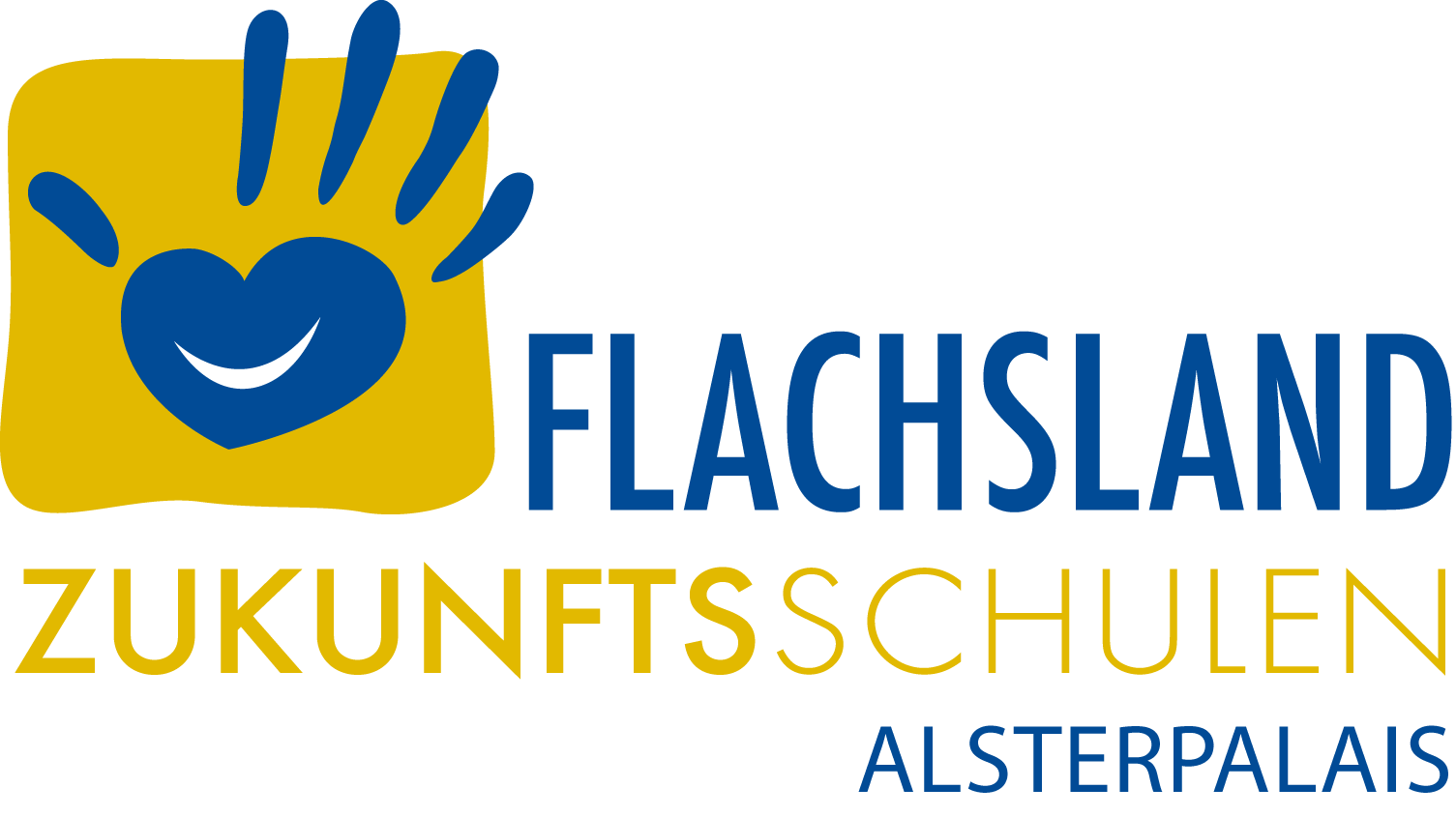Ecology & Sustainability
Ecologically responsible action is one of our basic principles because the future of the children and our habitat is close to our hearts. We want to be role models every day and show every day that the respectful handling of this planet’s resources is both necessary and possible. In many areas of our everyday life this means rethinking our ways, it often means doing things differently and in the end it is about gaining quality for the community – that is what we would like to communicate.
The basis for the responsible handling of our livelihoods is an appreciative attitude towards nature, people and other living beings. As a school in a large city this is why it is particularly important to us to offer the younger and older children the opportunity to experience nature with all their senses.
The organic farm Gut Wulksfelde, with which we have been cooperating for many years, is an important external place of learning for us. We visit further external places of learning on trips to the coast, to forests and to other places where we can experience nature.
It is important to us that the younger and older children at our Bildungshaus know where food and other goods that they consume daily come from. At our school they learn about growing and production conditions, supply chains and the use and exploitation of things that surround them every day. They also learn to challenge this and to think about the effects of modern life on people, the environment and nature.
Our pedagogues understand how to accompany the children in line with their age and stage of development and how to support them in acquiring the knowledge that they need in order to be able to act responsibly in this globally interconnected world.
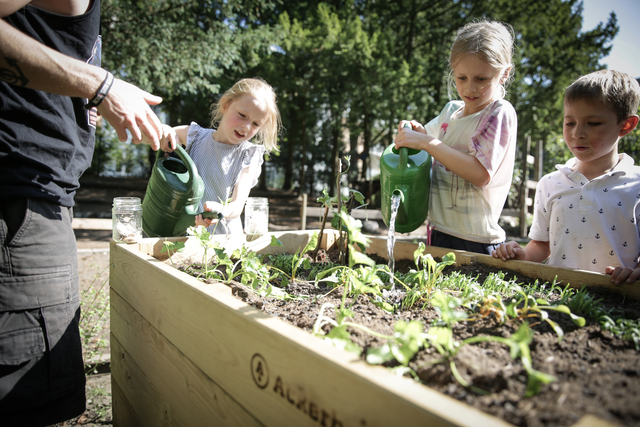
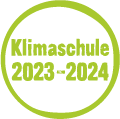
Nutrition - 100% organic
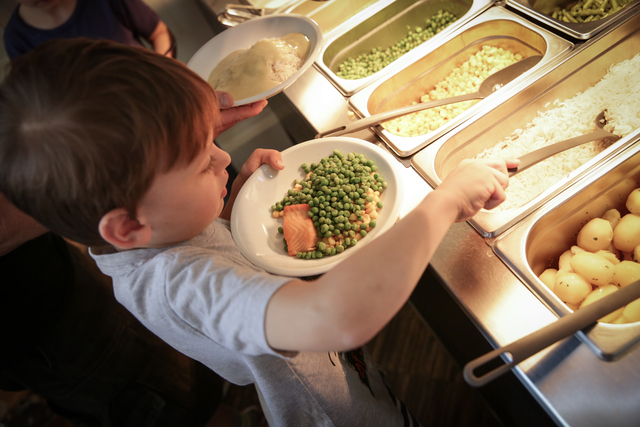
Environmentally compatible and healthy nutrition plays a central role for us. At our Bildungshaus we only use food from controlled, ecological cultivation (inspection body DE-ÖKO-006) and where possible from our own region. It is healthy and also contributes to maintaining our living environment.
The Alsterpalais kitchen team prepares all the meals freshly on the day. They only offer fish and meat once a week. We have also made a conscious decision to drink only tap water. That means we do not need to have drinks delivered and save large quantities of packaging.
You can find our current organic certification here. As we only use 100 % organic products our food does not contain any additives that require labelling.
For more information on our nutritional philosophy, click here.
Environmental protection in our everyday lives
We are careful with the things that we use here at our Bildungshaus. If something is broken then we work with the children to repair it, to order replacement parts and to be creative with the things we discard. At least one third of the materials in our atelier comprises objects that we or the families have donated. We donate any books that we no longer need.
We also encourage our families to carpool when travelling to the Bildungshaus, to arrive on foot, by bike or to take public transport – after all the Ohlsdorf underground and tram station is just around the corner.
In addition to this we collect rainwater and use it for the toilets and to water the garden.
We have also been working with the organic farm Gut Wulksfelde and the association Ökomarkt e.V. for many years and we hold a big organic market at Alsterpalais with them once a year.
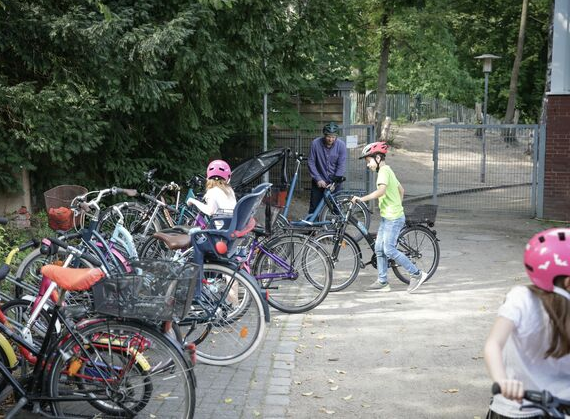
Ecology and sustainability at the childcare
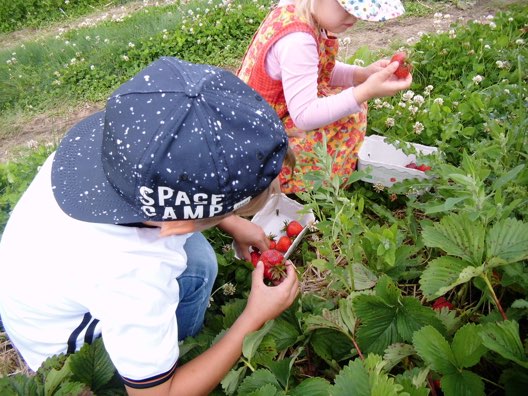
The children at the Bildungshaus childcare experience the conscious handling of our natural bases of life from their first year of life onwards. Environmentally conscious actions are a matter of course for our pedagogues, they are role models and attentive companions. Even our youngest children learn to switch the lights off when they leave a room and not to leave the tap running, to sort waste and only to take as much food at lunch as they can eat.
In our outdoor areas, which are designed in harmony with nature, we allow the children to experience their surroundings with all their senses and to thus develop an appreciative approach to nature. In our courtyard herb garden they get to know mint, melissa and woodruff and there are wild strawberries and raspberries growing there too, with a digging plot in the front garden where the children can search for earthworms and observe other small animals.
We go on trips to the Gut Wulksfelde organic farm six times a year, often together with the younger schoolchildren from the Bildungshaus. These trips are usually suitable for children aged 3 and above.
At the farm the children might learn, for example, how potatoes, strawberries or apples are cultivated, how they grow, are harvested and can be processed. If we pick strawberries in the summer then we make jam out of them, which we then sell at our organic market in the autumn. Our children also get to know animals in Gut Wulksfelde. For example they can visit the bees, pigs, sheep or chickens. Some of them can be fed, or even stroked.
We are delighted to report that the S.O.F. Save Our Future environmental foundation has granted us the ‘Kita21’ award on several occasions already for our commitment in the area of education for sustainable development. Most recently we received the award for a project in which the children looked at clothing and recycling.
Ecology and sustainability in the primary school
Ecologically responsible action remains the number one interdisciplinary topic at the school. Our pedagogues therefore feels a responsibility to refine the children’s eye for the ecological dimension of a topic whenever this appears to be useful. They also work together with the children in years 1 to 6 on projects that focus on climate protection, ecology and sustainability – for example in preparation for the Hamburg Climate Weeks or in reference to waste and recycling or the condition of the oceans.
The Gut Wulksfelde farm also remains an important external learning location for the primary school children. It is important to us that they also come to recognise wider correlations as they grow older. For example in relation to cereals and tilling the earth or animal husbandry and the consumption of meat. More emphasis is also placed on economic aspects when the schoolchildren look at careers in agriculture.

Ecology and sustainability in the secondary school
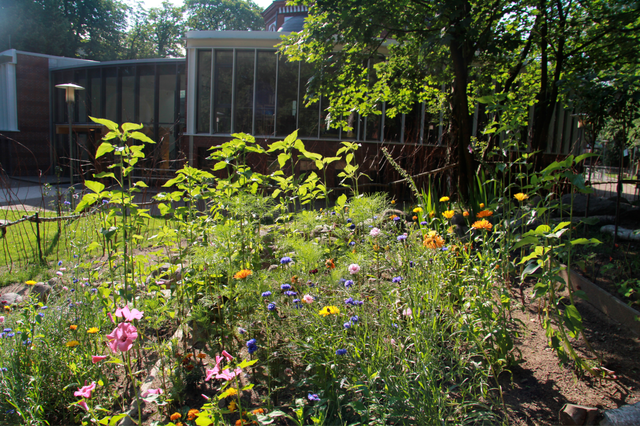
Ecologically responsible action of course remains an important interdisciplinary topic for the older children in the secondary school of our Bildungshaus.
We observe that the prior knowledge of our older schoolchildren, together with their experiences in life or often from travelling, mean that it is possible to look at things from an increasingly global perspective. In our experience the young people from year 7 onwards become more and more interested in global correlations, living conditions and the protection of natural environments and habitats, also in other parts of the world.
We continue to take the older children on trips to Gut Wulksfelde farm. In the older age groups more emphasis is placed on questions about the economic aspects of a farm. Does the farm receive subsidies, what forms of state support exist for agriculture in Germany, Europe and the world? The older schoolchildren are also often increasingly interested in the differences between conventional and ecological agriculture and animal husbandry.
